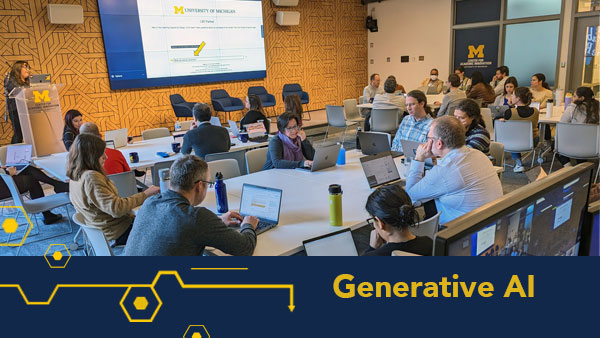Introduction
The University of Michigan, located in Ann Arbor, is a prestigious institution renowned for its commitment to academic excellence, groundbreaking research, and fostering innovation. Established in 1817, the University of Michigan has evolved into one of the leading public research universities in the United States. With its diverse and vibrant community of students, faculty, and staff, the university has created an environment that promotes intellectual curiosity, collaboration, and personal growth. Other universities include
Academic Programs and Excellence
Comprehensive Academic Offerings
The University of Michigan offers a wide range of academic programs across its 19 schools and colleges. These include the College of Literature, Science, and the Arts; the College of Engineering; the Ross School of Business; the School of Public Health; and the School of Music, Theatre & Dance, among others. The university is known for its rigorous academic standards, distinguished faculty, and comprehensive curriculum that prepares students for successful careers and lifelong learning.
Top-Ranked Programs
The university’s commitment to academic excellence is reflected in its numerous top-ranked programs. From business and law to engineering and medicine, the University of Michigan consistently ranks among the best in various disciplines. For example, the Ross School of Business is renowned for its MBA program, while the College of Engineering is celebrated for its research in fields such as robotics and computer science. These programs not only attract top-tier students and faculty but also contribute significantly to the university’s reputation on a global scale.
Interdisciplinary Studies and Experiential Learning
Students at the University of Michigan benefit from the opportunity to engage in interdisciplinary studies, research projects, and experiential learning. These opportunities foster critical thinking, problem-solving skills, and intellectual growth. Programs like the Michigan Research and Discovery Scholars (MRADS) allow undergraduate students to work alongside faculty on research projects, providing hands-on experience that is invaluable for their future careers.
Research and Innovation
Leading in Research Expenditures
The University of Michigan is a powerhouse of research and innovation, driving advancements in a wide range of fields. With annual research expenditures exceeding $1.6 billion, the university conducts pioneering research in areas such as health sciences, engineering, social sciences, humanities, and sustainability. This level of investment underscores the university’s commitment to addressing complex societal challenges and advancing knowledge.
Groundbreaking Discoveries
Groundbreaking discoveries made at the University of Michigan have had a significant impact on society and have led to transformative advancements in medicine, technology, and policy. For instance, researchers at the university developed the first synthetic insulin, revolutionizing the treatment of diabetes. Such innovations exemplify the university’s role in pushing the boundaries of what is possible.
Research Centers and Institutes
The university’s research centers and institutes provide a collaborative environment for faculty, students, and external partners. Examples include the Institute for Social Research, the Life Sciences Institute, and the Michigan Center for Sustainable Systems. These centers foster interdisciplinary collaborations and leverage cutting-edge facilities and resources, empowering researchers to make meaningful contributions to their respective fields.
Campus Life and Diversity
A Vibrant and Inclusive Community
The University of Michigan offers a vibrant and inclusive campus life that embraces diversity and promotes the holistic development of its students. The university’s diverse student body represents all 50 U.S. states and more than 130 countries, creating an enriching environment where individuals from various backgrounds and perspectives come together to learn and grow.
Extracurricular Activities and Student Organizations
The university provides a wide range of extracurricular activities, including student organizations, cultural events, and community service opportunities. These activities foster leadership skills, promote cultural understanding, and cultivate a sense of community and belonging. Students can engage in activities related to the arts, athletics, entrepreneurship, social justice, and more, allowing them to explore their passions and develop well-rounded perspectives.
Commitment to Diversity and Inclusion
The University of Michigan is committed to promoting diversity and inclusion on campus. It actively supports underrepresented groups, providing resources and support services to enhance their academic and personal success. Initiatives such as the Center for the Education of Women, the Spectrum Center, and the Office of Multi-Ethnic Student Affairs contribute to creating an inclusive environment where all students can thrive.
Alumni and Global Impact
Distinguished Alumni
The University of Michigan boasts a network of over 600,000 alumni who have made significant contributions across various fields. Notable alumni include Gerald R. Ford, the 38th President of the United States; Larry Page, co-founder of Google; and Tony Fadell, co-creator of the iPod and iPhone. These individuals exemplify the university’s tradition of excellence and its impact on the world.
Global Influence
The university’s influence extends beyond the United States, with collaborations and partnerships with institutions around the globe. Programs like the Michigan Global Scholars Program and the Office of Global Engagement facilitate international research collaborations, student exchanges, and global learning opportunities. These initiatives enhance the university’s global footprint and contribute to addressing worldwide challenges.
Future Directions
Embracing Technological Advancements
As the world continues to evolve, the University of Michigan remains at the forefront of embracing technological advancements. The university is investing in areas such as artificial intelligence, renewable energy, and precision health. By staying ahead of technological trends, the university ensures that its students are prepared for the future workforce and can contribute to solving emerging global issues.
Commitment to Sustainability
Sustainability is a core focus for the University of Michigan. The university has implemented ambitious sustainability goals, including achieving carbon neutrality by 2040. Through initiatives such as the Planet Blue program, the university is committed to reducing its environmental impact and promoting sustainable practices across campus.
Enhancing Student Experience
The University of Michigan continually strives to enhance the student experience. Recent investments in campus facilities, such as the new Biological Sciences Building and the expansion of the School of Music, Theatre & Dance, provide state-of-the-art resources for students. Additionally, the university is expanding its mental health and wellness services to ensure that students have the support they need to succeed academically and personally.
Conclusion
The University of Michigan stands as a preeminent institution of academic excellence and innovation. With its distinguished faculty, comprehensive academic programs, and commitment to research and innovation, the university offers students an exceptional educational experience. The campus community is characterized by its diversity, inclusivity, and vibrant student life, which foster personal growth, cultural exploration, and lifelong connections.
As the University of Michigan continues to push the boundaries of knowledge and tackle global challenges, it remains dedicated to preparing students to become leaders and change-makers in their respective fields. Through its unwavering commitment to academic rigor, research breakthroughs, and the cultivation of an inclusive community, the University of Michigan contributes to shaping a brighter future for individuals, communities, and society as a whole.
Frequently Asked Questions (FAQs)
- What makes the University of Michigan a top choice for students? The University of Michigan is renowned for its academic excellence, distinguished faculty, comprehensive academic programs, and commitment to research and innovation. Its diverse and inclusive campus community provides a vibrant and supportive environment for personal and academic growth.
- How does the University of Michigan support research and innovation? With annual research expenditures exceeding $1.6 billion, the university conducts pioneering research in various fields. Its research centers and institutes foster interdisciplinary collaborations, providing a collaborative environment for faculty, students, and external partners.
- What opportunities are available for students to get involved on campus? The university offers a wide range of extracurricular activities, including student organizations, cultural events, and community service opportunities. These activities foster leadership skills, promote cultural understanding, and cultivate a sense of community and belonging.
- How does the University of Michigan promote diversity and inclusion? The university actively supports underrepresented groups, providing resources and support services to enhance their academic and personal success. Initiatives such as the Center for the Education of Women, the Spectrum Center, and the Office of Multi-Ethnic Student Affairs contribute to creating an inclusive environment.
- What are the future directions for the University of Michigan? The university is investing in technological advancements, sustainability, and enhancing the student experience. It is committed to achieving carbon neutrality by 2040 and expanding its mental health and wellness services to ensure that students have the support they need to succeed.
Disclaimer
The information provided in this article is for general informational purposes only and does not constitute professional advice. While every effort has been made to ensure the accuracy and completeness of the information, educational practices and institutional offerings can vary over time. The details provided here reflect the most recent information available at the time of writing. Prospective students and other stakeholders are encouraged to verify the information from authoritative sources and directly from the University of Michigan.
The authors and publishers of this article are not responsible for any actions taken based on the information provided herein. For specific guidance and personalized advice, individuals should consult with educational professionals, academic advisors, or representatives from the University of Michigan. This article does not endorse or promote any specific educational institution, program, or individual. The opinions expressed are those of the authors and do not necessarily reflect the views of any affiliated organizations. Readers are encouraged to conduct their own research and seek professional guidance for their unique educational journeys.




